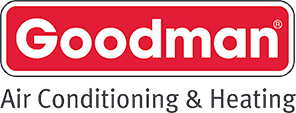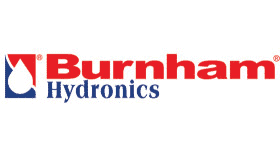You rely on your furnace to provide comforting heat during the winter’s coldest stretches. However, if your heating system fails to do its job, a faulty gas valve may be to blame. A malfunctioning gas valve is not only an inconvenience, but if left untreated, it can pose dangers to you and your family.
This guide uncovers how to know if the furnace gas valve is bad. If this issue affects your heating system, turn to Elgin’s reliable furnace repair experts at Leith Heating & Cooling. Our qualified HVAC technicians can repair your gas valve and restore heat to your home.
You Receive No Heat
Perhaps the most obvious sign that you have some sort of furnace issue is a total lack of heat. Your furnace’s gas valve plays an essential role in the combustion process. If it doesn’t emit enough, or any, gas into the combustion changer, the subsequent transfer of heat will not occur.
Without gas to fuel the heat source, your furnace will resort to blowing room-temperature air into your vents. This is never ideal when you need to heat your home, particularly in the midst of bitter-cold Illinois winter weather.
It’s important to note that a bad gas valve is just one of many reasons why your furnace may not generate heat, but let a licensed heating technician inspect the system to determine if your valve is the culprit. They possess the skills and experience to diagnose a faulty furnace gas valve and issue the appropriate repairs.
There Is Constant Furnace Cycling
You may hear your furnace constantly running but it never manages to properly heat your home. When your thermostat is set to a certain temperature, your furnace receives the signal to heat the home until it reaches that temperate. Failure to achieve your desired temperature is known as furnace cycling.
This issue is prevalent when your gas valve doesn’t give a sufficient flow of fuel to the furnace. It can lead to larger breakdowns within the system, such as the furnace’s blower motor overheating. If your furnace is cycling and not generating the heat you need, turn off its power to prevent further damage.
Call an HVAC expert to assess the system. A heating technician will be able to tell you if the valve is stuck and repair it. They can also diagnose any additional damage the system incurred from constantly running through a failed heat cycle.
Your Carbon Monoxide Alarm Sounds
A tell-tale way how to know if the furnace gas valve is bad is if your carbon monoxide alarm goes off or you smell gas. A gas valve that is not in good working condition can lead to a gas leak in your home, and this is the most dangerous indicator that you have a problem with the gas valve.
The furnace can start leaking gas if it builds up anywhere other than the combustion chamber and releases into your air. This presents significant health and safety concerns for you and your family. If you smell natural gas or your carbon monoxide alarm goes off, immediately shut off the furnace, evacuate your home, and call an emergency repair technician.
Do not attempt to fix your furnace’s gas valve in this scenario. You risk inhaling harmful substances, and home fires are more susceptible to sparking when there is a gas leak. Prioritize your safety and only let a trained technician deal with the problem.
The Furnace Floods
If you notice water damage near your furnace, consider the impact it can have on the heating system. Even the slightest bit of water around the furnace can lead to issues with your flame sensor, gas valve, and other crucial components.
Pay attention to your furnace’s function if part of it gets submerged in water. Call a professional HVAC company to inspect your furnace and rule out a faulty gas valve or to identify any other possible system damage. A technician will likely recommend replacing impacted components as a safety precaution.
How to Keep Gas Valves Functioning Safely
You now know how to tell if your furnace’s gas valve is bad, but how can you ensure that it works safely? Upgrading your heating system to the most energy-efficient model may help.
Common furnaces within homes are known as non-condensing units that fail to achieve an annual fuel utilization efficiency of 90%. A national heating goal is to have gas furnaces reach an annual fuel utilization efficiency of 95%. This change would help save homeowners money on energy costs, reduce carbon emissions, and keep gas furnaces operating effectively.
Another key way to keep gas valves functioning safely is to schedule routine maintenance for your heating system. Have a professional inspect the furnace and perform tune-up maintenance before each heating season. This ensures that your furnace operates as it should and allows you to fix potential issues before they snowball into costly repairs.
How to Fix Faulty Furnace Gas Valves
Depending on the condition of the valve and the overall function of the furnace, heating experts can repair or replace it. The gas valve on your furnace plays a crucial part in heating your home, yet it can be tricky to repair without experience.
Never try to repair a faulty gas valve without the proper qualifications. Trained HVAC specialists understand the complexities of your heating system and how each mechanism works to heat your home. They can recognize problems with the overall system that an inexperienced person wouldn’t understand.
A licensed technician can safely address the problem using special equipment for only those in the trade. This winning combination can get your gas valve repaired the correct way.
Reach Out to a Professional HVAC Company
When you need professional advice on how to know if a furnace gas valve is bad, turn to the experts at Leith Heating & Cooling. Our knowledgeable technicians can walk you through what to expect from furnace maintenance and complete any necessary repairs. Contact us at (847) 860-7092 to schedule a service appointment today.











